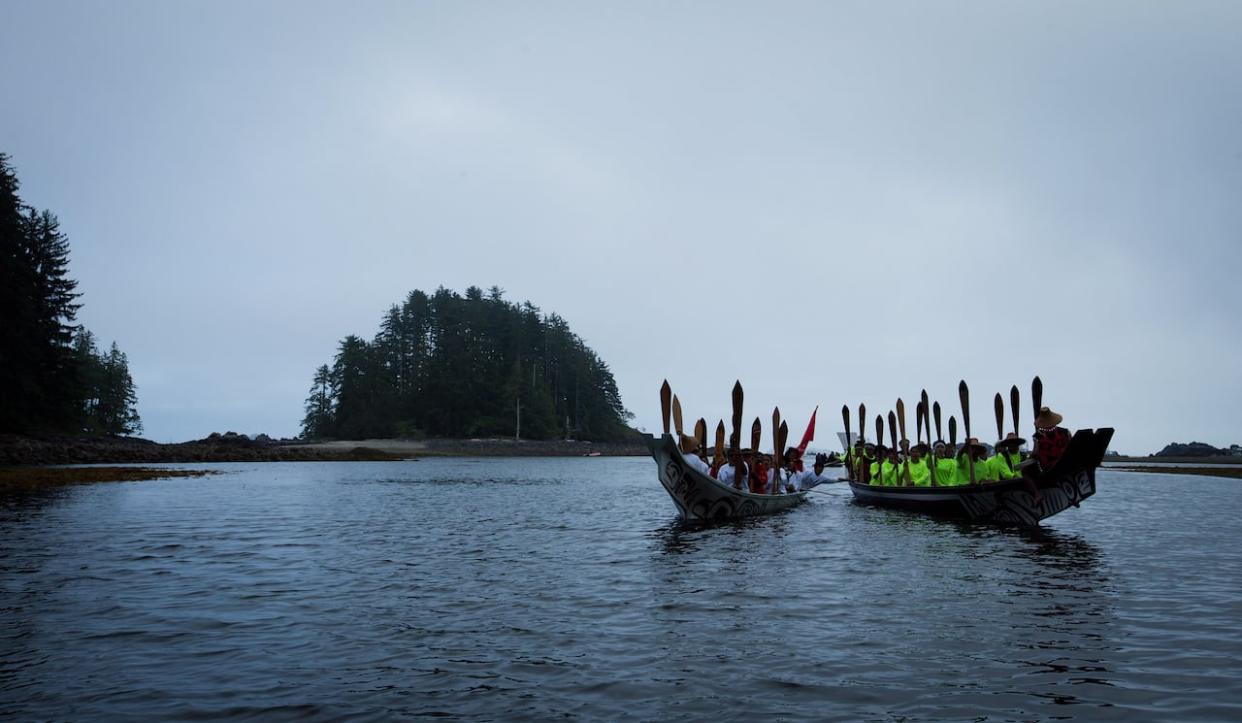Haida Nation Aboriginal title legislation gets royal assent in B.C. legislature

Legislation that recognizes the Haida Nation's Aboriginal title over all of Haida Gwaii received royal assent in the B.C. legislature on Thursday.
The Gaayhllxid/Gíihlagalgang "Rising Tide" Haida Title Lands Agreement upholds the nation's right over the land of Haida Gwaii under Section 35 of the Constitution — which affirms the rights of Indigenous people.
"Negotiating the acknowledgement of Haida title with the province of B.C. not only marks a welcome departure from an adversarial court process, but also uplifts the honour of the Crown by resolving the issue through negotiation rather than litigation," said Gaagwiis (Jason Alsop), president of the Council of the Haida Nation, in a release.
"Putting the question of title to rest enables us to embark on building a future with all the peoples of Haida Gwaii based on our relationship to the land and sea."

'Putting the question of title to rest enables us to embark on building a future with all the peoples of Haida Gwaii based on our relationship to the land and sea,' said Gaagwiis (Jason Alsop), president of the Council of the Haida Nation. (Carolina de Rky/CBC)
The agreement outlines a plan for governing land on Haida Gwaii, with a two-year transitional period focusing on land resource decision-making, starting with protected areas, fishing lodges and forestry.
"For the first time in Canadian history, Aboriginal title is being recognized and it's happening here in British Columbia," Premier David Eby said in a statement.
The province says it will work with the Council of the Haida Nation to align provincial and Haida Nation laws. Residents, local governments, and stakeholders will have the opportunity to provide feedback during the process.
Certain jurisdictional responsibilities such as health, transportation, education, and fire and emergency services will continue to be managed by the province and municipalities on Haida Gwaii. Current municipal boundaries and functions will remain unaffected.
'A historic and positive step forward'

B.C. Minister of Indigenous Relations and Reconciliation Murray Rankin called the legislation 'a historic and positive step forward.' (Mathieu Thériault/CBC)
Minister of Indigenous Relations and Reconciliation Murray Rankin applauded the move and emphasized the importance of collaboration.
"As we move forward with this legislation and agreement as the foundation for this work, I hope everyone recognizes this as a historic and positive step forward for Haida Gwaii residents, businesses and British Columbians," he said.
"After careful deliberation by the legislature, we are doing what the courts have asked us to do. This is truly an extraordinary moment that we are witnessing."
The province says the legislation, which is expected to come into force this year, will not affect private property, local governments, public infrastructure, programs or services.
Provincial leases, permits, and other approvals for the use of areas of Crown land will continue to be valid.

